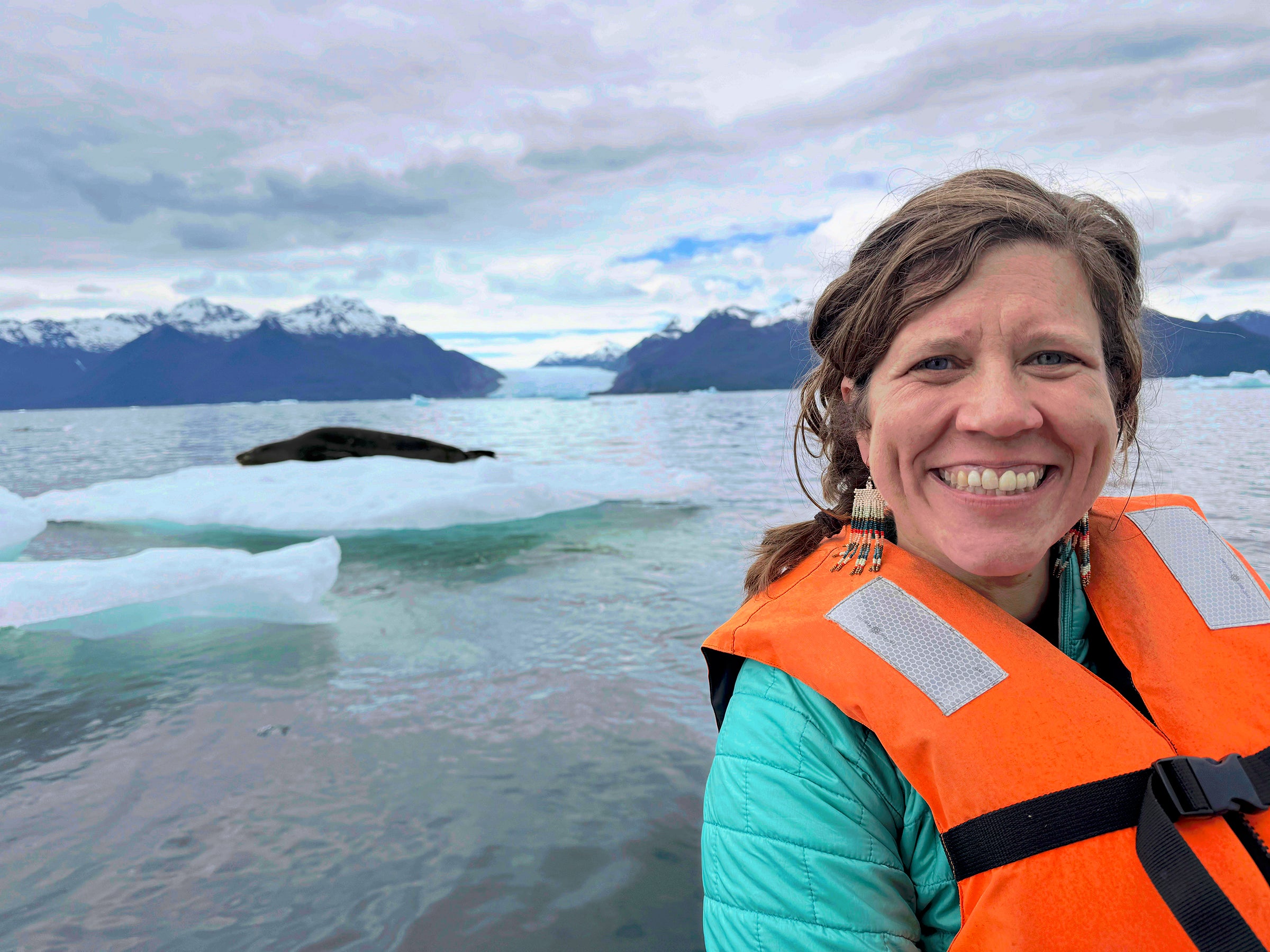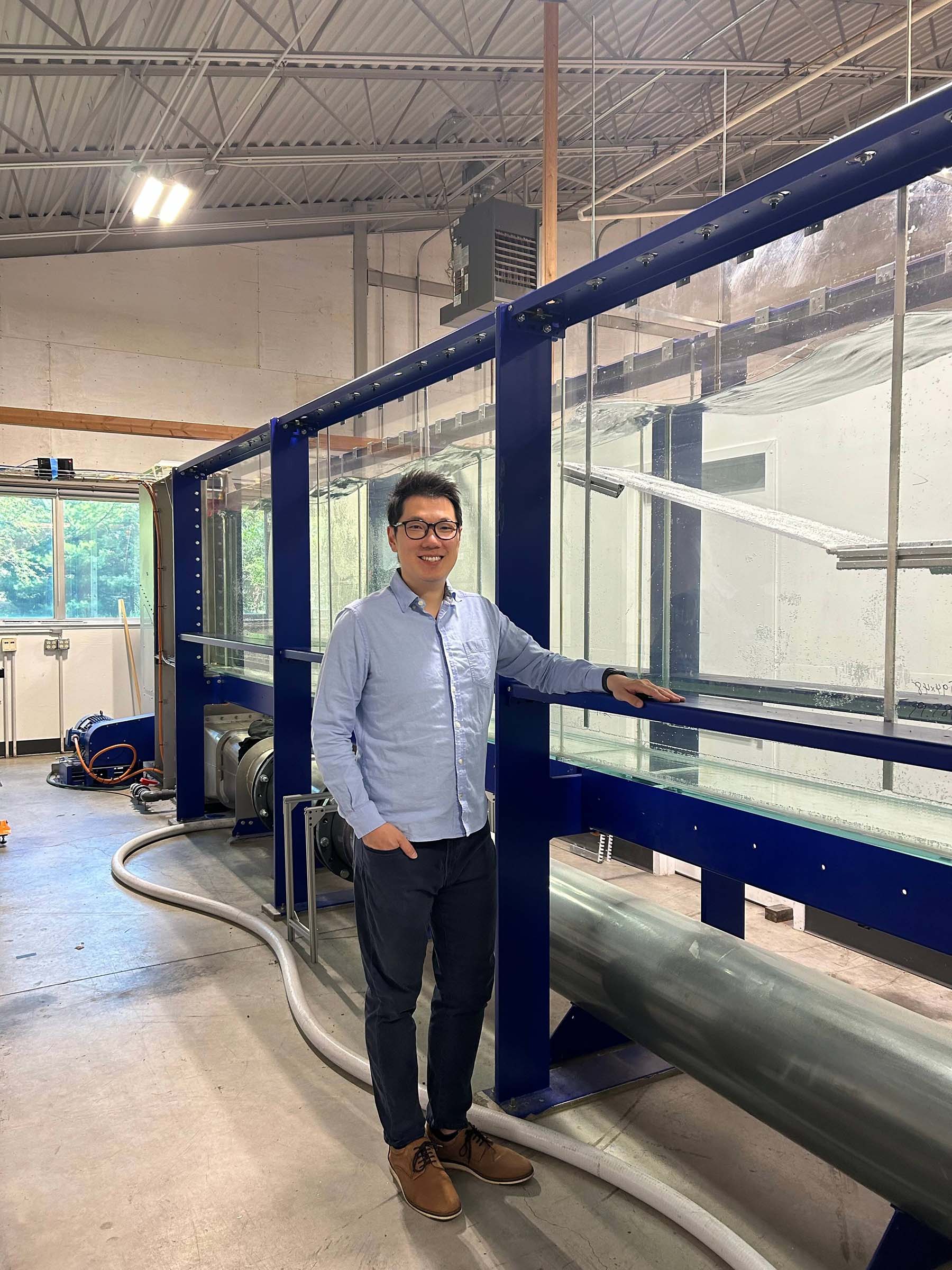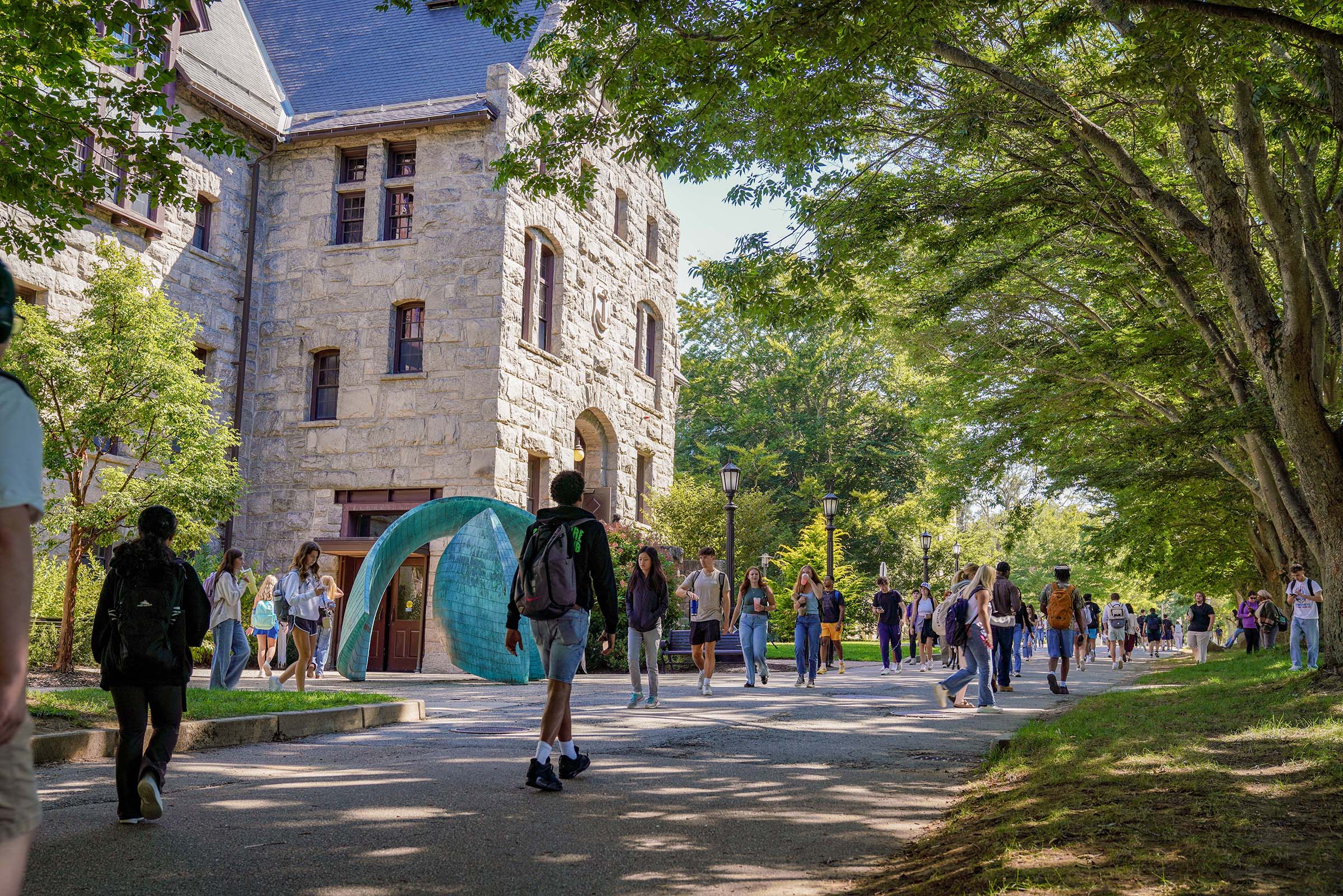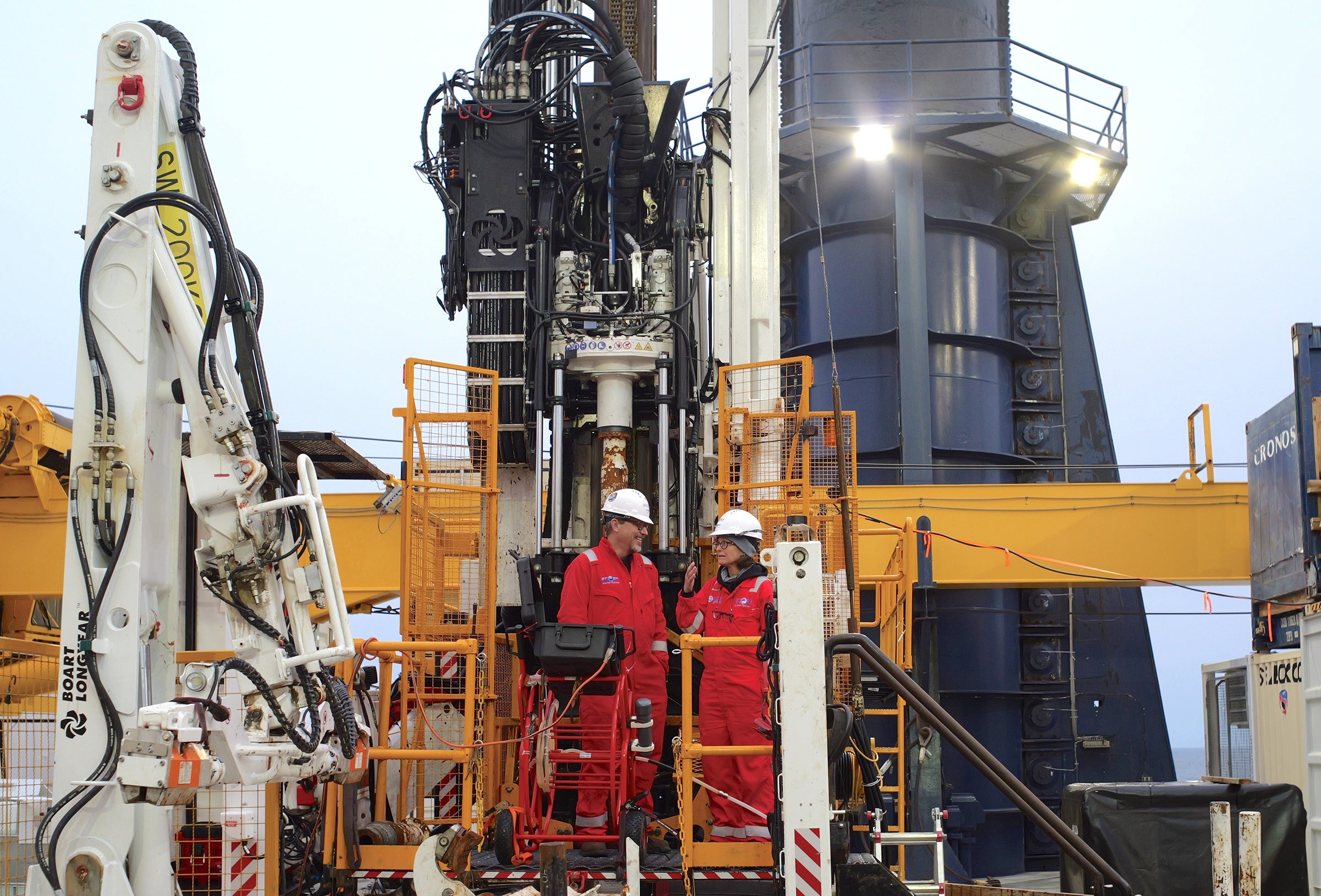URI professor receives NSF CAREER Award for study of Southern Ocean predator
KINGSTON, R.I. – Aug. 18, 2025 – Trait differences between males and females are widespread across the animal kingdom. Because these traits often lead to trade-offs that affect their reproductive success and survival, understanding them is a fundamental question in biology.
The leopard seal, a large predator in the Southern Ocean, offers an extreme example of female-biased dimorphism in mammals, where females are larger than males. The effects of these size differences are unknown.
A new project led by University of Rhode Island assistant professor Sarah Kienle will investigate the causes and consequences of female-biased dimorphism in leopard seals, generating new data on the life, physiology, and biology of this important and mysterious polar predator. Such information is critical for understanding leopard seals’ past, present, and future — from how the species evolved to predicting their resilience in an era of environmental change.

Kienle has been awarded a National Science Foundation Faculty Early Career Development (CAREER) Program award to discover why this is the case. NSF CAREER recognition is one of the nation’s top awards for early-career faculty who have shown the potential to serve as academic role models in research and education and lead advances in the mission of their institution.
The Newport, Rhode Island, resident says she was shocked to learn of the award. “It actually took me several hours to process the award email before I started sharing the news with my lab, family, and friends,” she says. “It’s a prestigious and career-affirming award.”

It also has the cool factor, not only because of its Antarctic subject matter: “This award combines behavior, morphology, and physiology in a really cool way to understand the reproductive biology of this enigmatic polar predator,” Kienle says.
The project will bring together international collaborators, and postdoctoral, undergraduate, and graduate students, so the study of a solitary animal will have a very collaborative approach. “Our team will get to work across career levels to produce some really awesome science,” Kienle says.
URI postdoctoral researcher Renato Borras-Chavez will coordinate and lead field efforts in Chile to obtain some of the first-ever data on the reproductive behavior of leopard seals. The team will bring students with them to gain hands-on field experience and, hopefully, be inspired to pursue a career in wildlife biology.
This project also complements other research efforts in Kienle’s lab on leopard seals and other apex predators.
They will use a new (to them) method to extract life history data from leopard seal teeth, collected from specimens in museum collections worldwide. URI postdoctoral fellow Emily Sperou will lead this research effort and train URI graduate student Patrick Bailey to apply these same methods to gray wolf teeth.
“I imagine this will be a skillset we will use on many species moving forward,” Kienle says.
The study will produce information deemed critical for understanding how leopard seals evolved to survive and persist in the Southern Ocean. The research aligns with the National Science Foundation’s Strategic Vision for Investments in Antarctic and Southern Ocean Research and will be broadly shared with global audiences.
In addition to creating a dedicated research team, the project will include a research-intensive undergraduate course and provide graduate students with hands-on leadership and mentoring, while engaging undergraduate students and the public in polar research.
Kienle is the principal investigator of URI’s Comparative Ecophysiology of Animals Lab (CEAL Lab). As a comparative biologist, her research integrates concepts from ecology, physiology, behavior, evolution, and conservation. Her research centers on apex predators and their response to environmental change. In addition to leopard seals, she also studies sea lions, whales, wolves, and coyotes. She has studied wildlife in North America, South America, Australia, Antarctica, and New Zealand. Her research group collaborates with researchers, managers, and citizen scientists worldwide to study and protect wild animals and their wild homes.
Latest All News
- URI engineering professor awarded NSF grant to study nature-based answers to wave, current hazardsKINGSTON, R.I. – Aug. 19, 2025 – Rhode Island’s coastline is eroding by nearly two feet annually, with some areas more than double that, according to the Coastal Resources Management Council. Rhode Island’s shoreline loss is especially profound in high-energy wave areas along the state’s more-exposed southern coast. University of Rhode Island Assistant Professor Che-Wei […]
- URI offering new programs for the 2025-26 yearKINGSTON, R.I. – Aug. 19, 2025 – Fall semester classes begin at the University of Rhode Island on Sept. 3, and this academic year the state’s flagship public research university is offering several new programs. Among new undergraduate options, the University will offer a B.A. in Business Studies, an online RN to BSN degree, and […]
- URI political science professor explores growth of digital repression around the globeKINGSTON, R.I. – Aug. 18, 2025 – One of Skip Mark’s “favorite” examples among the growing list of policies on the use of technology that could be used to suppress people’s rights is robot dogs. In November 2022, the Board of Supervisors in San Francisco voted in support of allowing police to deploy robot dogs […]
- Jensen Named Head Coach of RamettesKINGSTON, R.I. - Rhode Island alumna and former New England Patriots cheerleader Kayla Jensen has been named as the new URI Ramettes head coach.
- How did freshened water end up beneath the seafloor? Sediment collected by scientists may reveal answersKINGSTON, R.I. – Aug. 18, 2025 – How did freshened water end up beneath the New England Shelf miles offshore, how long has it been there, and how much of it exists? Rebecca Robinson, a professor in the University of Rhode Island Graduate School of Oceanography, is attempting to answer those questions by studying samples […]
- Tariff-induced uncertainties cloud R.I. economy’s recession status, says URI economistAug. 15, 2025 WHAT: Rhode Island’s economic performance for June continued the year’s trend of the Current Conditions Index slipping into or remaining in contraction territory. June’s CCI value matched May’s outcome of 42 as the index remained below year-earlier values each month this year. While some indicators improved in June, those improvements were tepid […]












